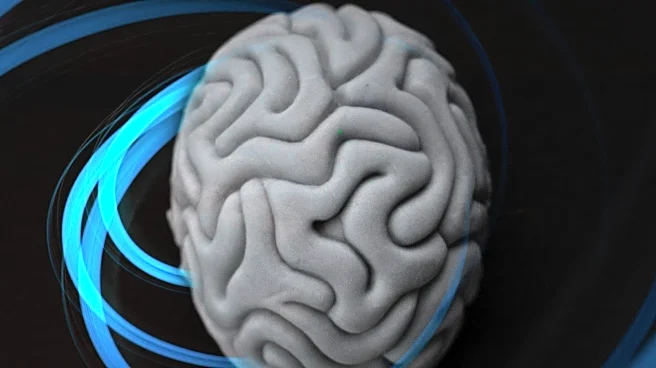What's Happening?
Recent research has uncovered what happens in the brain during moments of zoning out, often referred to as 'microsleep.' The study involved 26 participants who underwent brain scans after both restful
and sleep-deprived nights. Findings indicate that zoning out is linked to increased cerebrospinal fluid movement away from the brain, which returns when attention is regained. This process is thought to help the brain recharge and reset. The research suggests that zoning out may be necessary for maintaining brain health, allowing neurons to rest and neurotransmitters to function effectively.
Why It's Important?
Understanding the brain's activity during zoning out has implications for mental health and cognitive function. The study highlights the importance of adequate sleep and nutrition in maintaining focus and preventing attention lapses. These findings could influence approaches to managing sleep disorders and cognitive health, emphasizing the need for balanced sleep and dietary habits. Additionally, the research may inform strategies for addressing conditions like ADHD, migraines, and seizures, which can be associated with frequent zoning out.
Beyond the Headlines
The study raises questions about the potential benefits of zoning out for memory consolidation and stress management. It suggests that brief lapses in attention might be a natural mechanism for the brain to cope with overwhelming stimuli. This insight could lead to new therapeutic approaches for enhancing cognitive resilience and mental well-being. Furthermore, the research underscores the complexity of brain functions and the need for continued exploration of how sleep and nutrition impact mental health.











